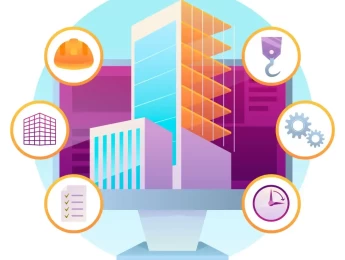Facilities management greatly benefits from a strong focus on operational excellence. Operational excellence encompasses the multiple areas of business functions and how, when efficiently aligned, they can drastically improve the organisation’s day-to-day functions, resulting in more consistent results.
Excellence covers many different areas, including risk management, finance management, and quality. These work hand in hand to ensure the business succeeds in meeting its goals. Quality focuses on providing services and maintaining maximum productivity without sacrificing safety or quality. Factors such as the available budget and adequate design can influence quality.
Facilities management is an industry that must prioritise risk management due to its practical nature. The risk management process should identify and prioritise all possible risks based on severity and potential impact. Extensive preventative measures should be in place to reduce risk potential, and these must all be compliant with health and safety regulations.
Upon completion of this course, participants will be able to:
- Understand the vitality of operational excellence within facilities management.
- Monitor performance and measure the levels of quality throughout the organisation.
- Identify what factors contribute to operational excellence.
- Guarantee all facilities and functions fully comply with local and national health and safety laws.
- Utilise various methods to increase productivity and sustainability without sacrificing quality.
- Create action plans detailing goals and objectives, and strategies for achieving these.
- Establish a workplace culture that strives for excellence.
- Align all different areas of facilities management with the organisation’s goals to ensure excellent development.
This course is designed for anyone within facilities management who is responsible for maintaining operation excellence It would be most beneficial for:
- Facilities Managers
- Operations Managers
- Risk Analysts
- Risk Managers
- Financial Advisors
- Contractors and Sub-contractors
- Compliance Officers
- Quality Managers
This course uses a variety of adult learning styles to aid full understanding and comprehension. Participants will review case studies of successful facilities management, including relevant documents to highlight key features in processes, areas with high-risk levels and potential ways to minimise them.
They will have the opportunity to participate in a variety of learning methods, including presentations, group discussions, video materials, and practical demonstrations. This combination of learning methods will ensure that the participants can fully develop their knowledge and related physical skills.
Day 5 of each course is reserved for a Q&A session, which may occur off-site. For 10-day courses, this also applies to day 10
Section 1: Introduction to Facilities Management
- Define what facilities management is, its importance and its necessity within an organisation.
- Identifying the role of excellence within facilities management.
- What internal and external factors can influence the productivity and excellence of facilities management?
- Recognising the different features of excellence and how they impact performance.
- Exploring the skills, competencies and responsibilities surrounding a facilities management professional.
Section 2: Understanding Quality and Design
- The primary role quality has within operational excellence.
- Meeting legal and industry standards through the design and quality management process.
- The influences on quality – skill, resources, and price.
- Creating designs that match the ideal level of quality specified within the organisation’s goals.
- Focusing on innovation and various strategies to achieve maximum quality designs.
Section 3: Monitoring Performance
- Establish objectives that align with the organisation’s goals to ensure consistent performance.
- Utilising KPIs to understand existing performance.
- Create reports on various facilities management features to document an in-depth understanding of operational, financial, and quality delivery.
- Analysing gathered performance data and strategising methods for increasing performance.
- Effectively communicating performance goals to remove any confusion among individuals.
Section 4: Health and Safety
- Investigating what health and safety laws and regulations apply to facilities management.
- Ensuring full compliance with health and safety regulations.
- Conduct regular risk assessments to identify all potential risks and establish a risk management plan prioritising these.
- Implementing preventative measures to reduce the probability of risks occurring.
- The vitality of crisis management and creating business continuity plans.
Section 5: Building Maintenance
- Utilise risk management data and condition surveys to calculate the time necessary between facility maintenance.
- Understand the positive and negative impacts of ‘up-time’ and ‘down-time’ on an organisation.
- Minimising the amount of downtime without increasing risk.
- Controlling costs of repairs and maintenance.
Upon successful completion of this training course, delegates will be awarded a Holistique Training Certificate of Completion. For those who attend and complete the online training course, a Holistique Training e-Certificate will be provided.
Holistique Training Certificates are accredited by the British Assessment Council (BAC) and The CPD Certification Service (CPD), and are certified under ISO 9001, ISO 21001, and ISO 29993 standards.
CPD credits for this course are granted by our Certificates and will be reflected on the Holistique Training Certificate of Completion. In accordance with the standards of The CPD Certification Service, one CPD credit is awarded per hour of course attendance. A maximum of 50 CPD credits can be claimed for any single course we currently offer.
- Course Code IND21-107
- Course Format Classroom, Online,
- Duration 5 days














